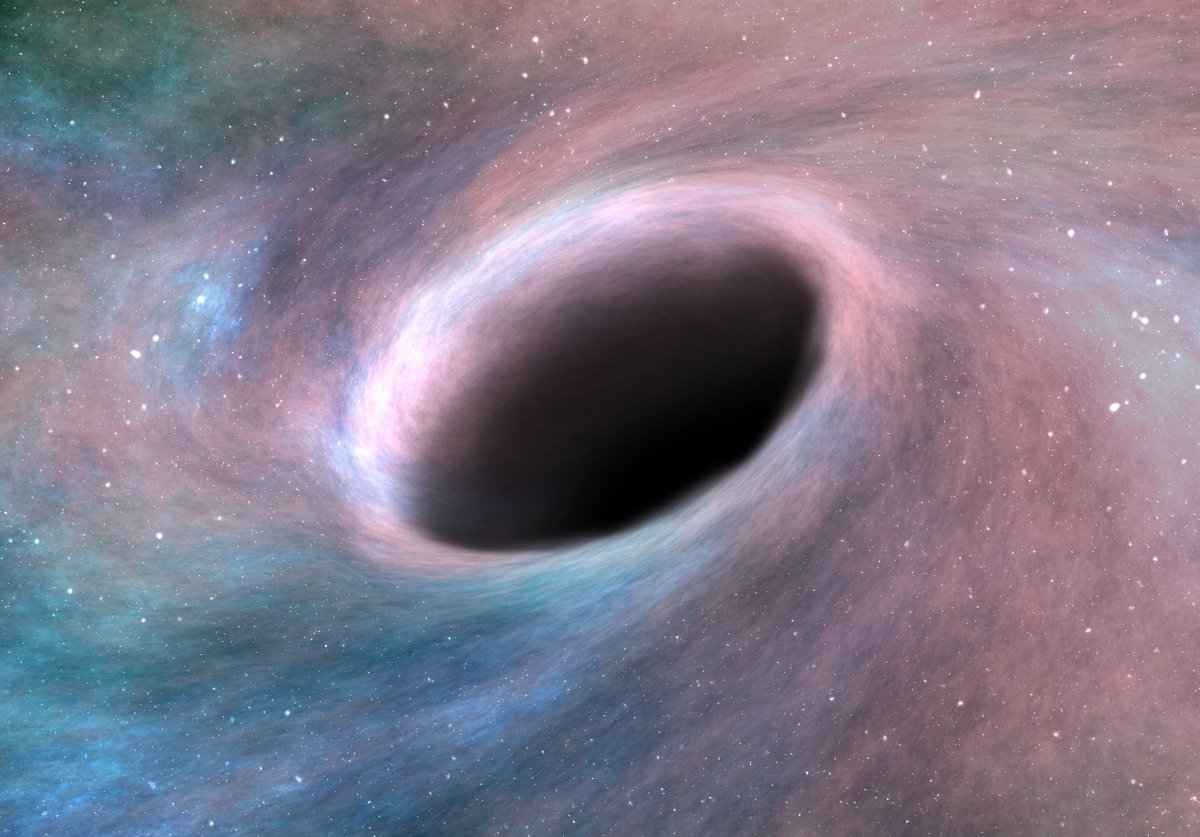In 2017, scientists set out on a mission to take the very first picture of a black hole's event horizon. Over 10 days, the team observed Sagittarius A*—the black hole that sits at the center of the Milky Way. They linked up telescopes around the globe virtually and by doing so created one huge, Earth-sized telescope.
Over the observation period, the Event Horizon Telescope (EHT) team collected a petabyte of data. This was then distributed to two research institutions—MIT Haystack Observatory in the U.S. and the Max Planck Institute for Radio Astronomy in Germany. The data were then processed by supercomputers.
Now, the researchers are set "to present a groundbreaking result from the EHT," a statement from the European Southern Observatory and the U.S. National Science Foundation (NSF) said. The announcement will be made on April 10, and viewers can watch a live stream here.
Further details about the results are not known. Press conferences are being held across the world, including the U.S., Chile, Brussels, Spain, Japan, China and Taiwan.
The NSF conference will be attended by a panel of EHT researchers: Sheperd Doeleman from the Harvard & Smithsonian Center for Astrophysics; Daniel Marrone from the University of Arizona; Avery Broderick of Canada's University of Waterloo; and Sera Markoff from the University of Amsterdam in the Netherlands.
Black holes are regions in space where the gravitational pull is so strong that not even light can escape. The event horizon is the theoretical boundary that serves as the point of no return.
Astronomers can see black holes as the material they accumulate is extremely hot, so it appears very bright. However, we currently have no decent image of a black hole or its event horizon because the resolution of the images is not high enough and it just appears as a bright blur. It is hoped the EHT will change this, providing researchers with a clear image showing the event horizon ring and the shadow of the black hole.
In an interview with Newsweek following the 2017 observation period, Vincent Fish, a research scientist at MIT Haystack, said scientists hope to see the flow of material in and out of the black hole. "What we expect to see is an asymmetric image where you have a circular dark region. That's the black hole shadow," he said.
"And there might be a bright ring at the edge of that, which is the photon ring [a spherical region of space where gravity is so strong that photons are forced to travel in orbits]. Then around it you will see one side is bright and the other side is faint, so kind of like a crescent," Fish said.
Once scientists have the image, they can use it to better understand black holes, allowing them to test theories about general relativity and quantum mechanics.
Gopal Narayanan, who was in charge of the EHT effort at the Large Millimeter Telescope in Mexico, said in a statement: "[An event horizon] is the best lab we have to study the extreme physics out there. These are the observations that will help us to sort through all the wild theories about black holes.
"And there are many wild theories. With data from this project, we will understand things about black holes that we have never understood before," he said.

Uncommon Knowledge
Newsweek is committed to challenging conventional wisdom and finding connections in the search for common ground.
Newsweek is committed to challenging conventional wisdom and finding connections in the search for common ground.
About the writer
Hannah Osborne is Nesweek's Science Editor, based in London, UK. Hannah joined Newsweek in 2017 from IBTimes UK. She is ... Read more
To read how Newsweek uses AI as a newsroom tool, Click here.








